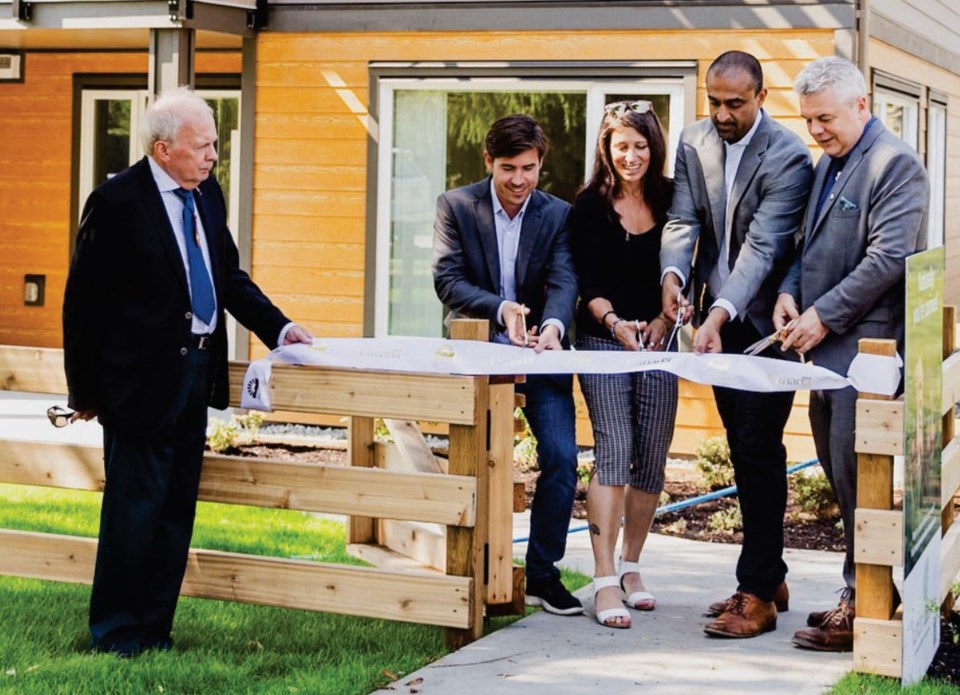Sunshine Coast Affordable Housing Society president Kim Darwin asked “What percentage of the Sunshine Coast Regional District’s (SCRD) property tax revenue goes into affordable housing?” at that entity’s Sept. 26 committee of the whole meeting. She answered that rhetorical question herself; ensuring it was on the meeting record that the number is “zero."
That dearth was acknowledged by committee chair Gibsons area director Silas White, who in response, noted that housing is a provincial government responsibility.
Currently, the SCRD uses dollars generated by the two per cent Municipal and Regional District Tax (MRDT) on the commercial accommodation sector ($110,000, which was from MRDT revenues received in 2023, according to Sunshine Coast Tourism staffer Annie WIse) to fund a regional housing coordinator position, a person who works closely with the society. Darwin and White agreed that there are examples in B.C. where regional governments commit additional revenues to affordable housing efforts.
What can be done and why is it needed
Both expressed knowledge of a service established by the Cowichan Valley Regional District. There, a maximum of $765,000 is raised by property tax and contributed to the Cowichan Housing Association Financial Contribution Service, “to provide program and services to affordable housing and homelessness prevention” according to the region’s website. In 2024, that service cost each property owner in that region $3.87 for each $100,000 in assessed property value.
Darwin said the society needs more funding to remain sustainable. At present, the only paid position is the housing coordinator, who works part-time with the society in addition to other assignments. Much of the work that has led the group to partner in opening 43 affordable living rentals in Gibsons with projects on Franklin and Shaw Roads falling to its volunteer board of directors.
Moving forward, Darwin said the Society is looking to have two paid positions: a full-time executive director and a part-time administrator.
With additional capacity, she said the group could advance initiatives currently in its work plan, including a pilot project on Naturally Occurring Retirement Communities (NORCs) where housing for older adults is combined with onsite social and healthcare supports.
Another pilot project is development of a model “for converting single-family properties into multi-units that are low-carbon, accessible, and below-market value."
In the area of information gathering, the society has plans to complete a needs assessment and business case for recovery housing and support services as well as an assessment of all under-utilized public and non-profit land on the Coast, to look for sites where housing could be developed.
Darwin stated arrangements are being made to approach other local governments.



